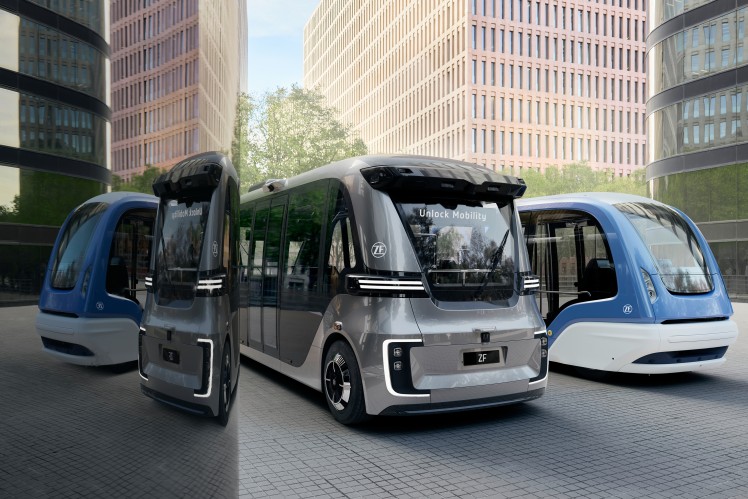ZF has decided to re-evaluate its self-driving shuttles business, pulling the plug on the development of its second-generation self-driving shuttle first launched at this year’s CES, designed for use in mixed traffic in urban environments. Instead, the company says it will switch its strategic focus and investment to providing engineering services to customers and further developing the building blocks needed to advance autonomous driving. The company confirmed existing partnerships and projects relating to its first-generation GRT shuttle, designed for use in segregated lanes, will be continued, as well as ZF aftermarket activities.
With the market for autonomous shuttles developing more slowly than anticipated, and at a time where the persisting multi-crisis and the ongoing transformation towards e-mobility requires a stringent cost focus across the entire industry, the company says it can no longer justify the high up-front investments required to deliver an entire autonomous transportation system.
Having evaluated all options, ZF has concluded that the most promising strategy for the future is to focus on positioning ZF as a premium supplier of autonomous driving technology and engineering services.
Therefore, ZF will maintain the original position as a supplier to OEMs while continuing to develop the technologies needed to build autonomous transportation systems and advanced passenger cars with assisted and self-driving capabilities. In addition, ZF will market the group’s unique expertise in systems solutions by offering valuable and highly sought-after development services to customers in the automotive and mobility industry.
The company believes this redirection away from facilitating entire shuttles will allow ZF to better focus on its core technologies and serve its OEM customers in the passenger car, commercial vehicle, and industrial space. ZF will continue to be a strong enabler of ‘next-generation mobility’ by providing OEMs with a unique offering.
Today, automated and autonomous functions have found their way into all vehicle categories, where they make a significant contribution to greater safety, efficiency, and comfort. The technical basis for these functions is provided by ZF, which has developed a strong portfolio of advanced sensors, high-performance computers, special software solutions, and intelligent actuators over the past years.
Existing partnerships and projects with the GRT shuttle for operation in separated lanes will continue as before. This shuttle model from ZF subsidiary 2getthere is already being used successfully in projects such as Rivium in the Netherlands and will continue to be produced and sold by US license partner Oceaneering in the future.
Projects such as RABus for researching automated bus operation in the two German cities of Mannheim and Friedrichshafen is important for the new business model and is also intended to be implemented as planned.
ZF will also continue its aftermarket activities for autonomous vehicle fleets and offers services like maintenance, repair and training.


